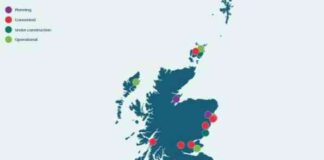Richest Nations Fueling Global Biodiversity Loss Through Imports
A recent study conducted by Princeton University has shed light on the significant role that high-income countries play in driving biodiversity loss worldwide. Surprisingly, these nations are found to be exporting extinction by contributing to habitat destruction at a rate 15 times higher beyond their borders than within their own territories. The impact of their consumption on biodiversity loss is both alarming and concerning, raising questions about the sustainability of current trade practices and environmental policies.
Unveiling the Global Impact of High-Income Countries
According to the study, a staggering 13.3 percent of biodiversity loss on a global scale is attributed to the consumption patterns of the wealthiest nations. This destruction is primarily fueled by activities such as deforestation for agricultural purposes and timber extraction. While these countries may degrade their own ecosystems to some extent, the true extent of their impact is revealed when they import goods that contribute to habitat loss in other regions. This phenomenon, termed “outsourced deforestation,” highlights the interconnectedness of the global economy and its far-reaching consequences on wildlife and ecosystems.
Lead author of the study, Alex Wiebe, emphasized the importance of tracing the environmental impacts of countries beyond their borders. By integrating satellite imagery, economic trade data, and biodiversity information, researchers were able to pinpoint the severe biodiversity loss “hotspots” and quantify the extent of each nation’s contribution to habitat destruction. The findings not only underscore the global nature of biodiversity loss but also highlight the disparities between a country’s domestic and international impacts.
The Role of International Trade in Endangering Species
The study revealed that high-income nations, including the United States, France, Germany, China, and Japan, are among the top contributors to global biodiversity loss through their imports. By sourcing food and timber from other countries, these developed nations inadvertently accelerate the extinction of species in more biodiverse regions, particularly in tropical areas. The impact of international trade on endangered species is particularly concerning, with over half of the ranges of critically endangered species being lost due to consumption patterns over a span of 14 years.
David Wilcove, co-author of the study, emphasized the need for collaboration between exporting and importing countries to mitigate the environmental impacts of global trade. By promoting habitat protection and sustainable agriculture practices, nations can work towards conserving biodiversity and ensuring the long-term sustainability of ecosystems. The study calls for a paradigm shift in the way nations approach trade policies and environmental conservation, urging a more holistic and collaborative approach to address the challenges posed by outsourced deforestation.
In conclusion, the study sheds light on the hidden costs of international trade and the urgent need for collective action to protect biodiversity and preserve ecosystems for future generations. As nations grapple with the environmental impacts of their consumption patterns, it is essential to recognize the interconnectedness of global trade and its repercussions on wildlife and habitat conservation. By working together, countries can pave the way for a more sustainable and harmonious relationship between human activities and the natural world.














